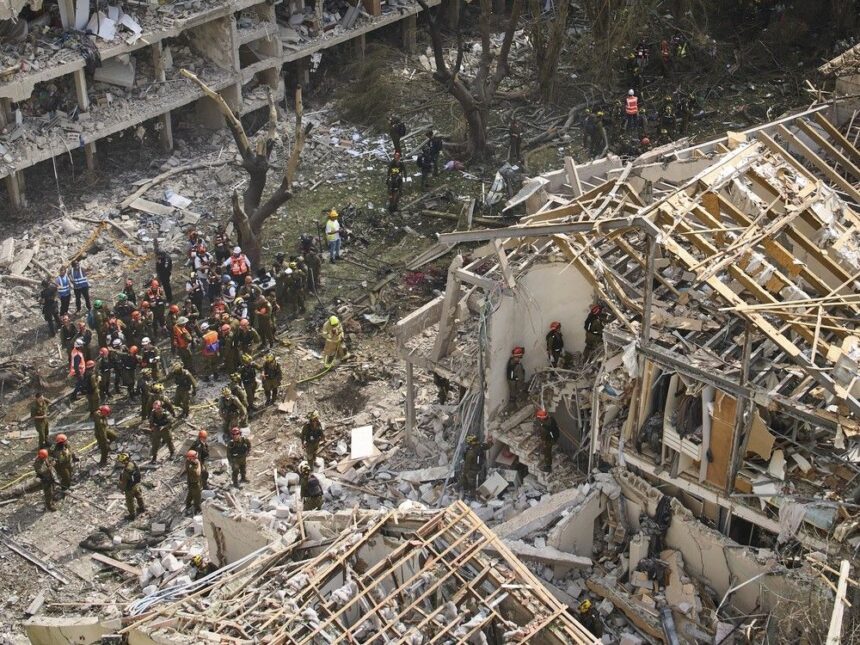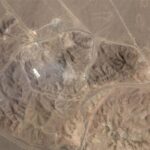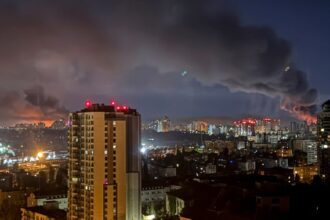In an unprecedented escalation that has sent shockwaves across the Middle East, Iran launched approximately 180 ballistic missiles directly at Israel on Tuesday, marking the most significant direct attack from Tehran against its regional adversary in decades. The barrage comes amid heightened tensions following recent Israeli operations in Lebanon and ongoing conflict in Gaza.
As air raid sirens wailed across Israel, residents rushed to shelters while the country’s sophisticated Iron Dome defense system engaged incoming projectiles illuminating the night sky. Israeli authorities report that while the missile defense systems intercepted numerous incoming threats, some impacts were recorded, though with limited damage and casualties reported so far.
“This operation was conducted in response to the martyrdom of resistance leaders and the ongoing genocide in Gaza,” stated Iran’s Islamic Revolutionary Guard Corps in an official announcement, referring to recent Israeli operations that eliminated key Hezbollah figures including leader Hassan Nasrallah.
The attack represents a dramatic shift in Iran’s approach. While Tehran has long operated through proxy forces like Hezbollah and Hamas, this direct military action signals a dangerous new phase in the regional conflict. Military analysts suggest the missile barrage was carefully calibrated – substantial enough to demonstrate Iran’s capabilities while potentially avoiding the level of destruction that might trigger a full-scale war.
President Biden convened an emergency meeting of his national security team at the White House, condemning the Iranian attack as “reckless” and reaffirming America’s “ironclad commitment to Israel’s security.” U.S. forces in the region have reportedly assisted in intercepting incoming missiles, underscoring Washington’s direct military support for Israel’s defense.
International reaction has been swift, with the United Nations Security Council expected to hold an emergency session. European leaders issued statements calling for restraint, while oil prices surged nearly 4% in overnight trading as markets reacted to the prospect of broader regional instability affecting energy supplies.
The missile strikes follow months of escalating tensions after Hamas’ October 7 attack on Israel and the subsequent Israeli military campaign in Gaza. The recent intensification of Israel’s operations against Hezbollah in Lebanon, including the targeted killing of senior leadership, appears to have crossed Tehran’s stated red lines.
Israeli Prime Minister Benjamin Netanyahu, speaking from Israel’s military headquarters, promised a “significant response” to the Iranian attack. “No country has the right to threaten Israel’s existence. We have the capability and determination to defend ourselves on all fronts,” he stated during a televised address.
Regional experts caution that the situation remains extremely volatile, with the potential for miscalculation high. “We’re witnessing a dangerous moment where decades of proxy conflicts could transform into direct state-to-state warfare with catastrophic implications,” noted Dr. Sarah Levinson, a Middle East security analyst at the Global Policy Institute.
The immediate question facing policymakers in Jerusalem, Washington, and Tehran is whether this exchange marks the beginning of a wider regional war or whether diplomatic channels might yet prevent further escalation. As missile fragments are cleared from Israeli streets and both sides assess their next moves, the world watches anxiously: can the Middle East step back from what appears to be the brink of all-out war, or have we witnessed the opening salvo of a much larger conflict?
















